
Hang on a minute. Whom did we just elect? The Republican ticket had two names at the top: Donald Trump and J.D. Vance. But parts of this delirious November created the impression that someone else has taken hold of our collective destiny.
We already knew him in various roles-the guy who bought Twitter and fired more than half its staff, the inventor who brought the space program back to life, the carmaker whose new trucks make kids stop and stare on the sidewalk. All of a sudden, Elon Musk had moved into the realm of politics, headlining rallies, steering government appointments, shaping the agenda for the next President of the United States.
For more than three years he's been one of the world's richest and most powerful men. Markets soar and tumble on his tweets. Astronauts fly in his spaceships. Armies advance with the signals from his satellites. Conspiracy theories go mainstream through his embrace. But it was only in the spotlight of these elections that the full extent of his influence came into view.
Not since the age of William Randolph Hearst, the newspaper magnate who greased FDR's ascent nearly a century ago, has a private citizen loomed so large over so many facets of American life at once, pulling the nation's culture, its media, its economy, and now its politics into the force field of his will. Standing beside him, even Trump can seem almost in awe, less a boss than a companion to the man for whom this planet and its challenges are not big enough.
This story is from the {{IssueName}} edition of {{MagazineName}}.
Start your 7-day Magzter GOLD free trial to access thousands of curated premium stories, and 9,000+ magazines and newspapers.
Already a subscriber ? Sign In
This story is from the {{IssueName}} edition of {{MagazineName}}.
Start your 7-day Magzter GOLD free trial to access thousands of curated premium stories, and 9,000+ magazines and newspapers.
Already a subscriber? Sign In
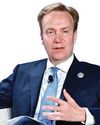
Q & A: Borge Brende
The World Economic Forum president talks with TIME editor Sam Jacobs
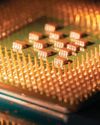
Q & A - Rene Haas
Arm's CEO on how his hardware is supporting the Fourth Industrial Revolution
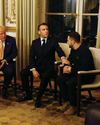
The conflicts looming over 2025
WHEN DONALD TRUMP TOOK THE OATH OF OFFICE AS President in January 2017, his first foreign policy priority was to get tough on China. The Trump 2.0 Administration will continue that work. But when he strides back into the Oval Office in January 2025, Trump will also become responsible for U.S. management of two dangerous wars, the kinds of hot foreign policy crises he was fortunate to avoid during his first term.
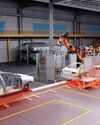
Rev Lebaredian
Nvidia's vice president of Omniverse and simulation technology on training AI-powered robots
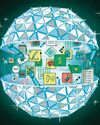
5 predictions for AI in 2025
New uses and policy questions come into focus
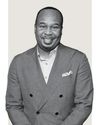
Roy Wood Jr. The comedian on his new stand-up special, the importance of working in food service, and learning from Keanu Reeves
8 QUESTIONS WITH Roy Wood Jr.
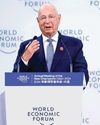
A call for global cooperation in the Intelligent Age
Cultivate wisdom along with innovation
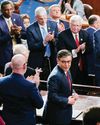
The D.C. Brief
IN THE END, THE THREAT OF A FARright revolt proved more menacing than most imagined, as Republican Mike Johnson initially came up short on Jan. 3 during the first balloting to keep him as Speaker.
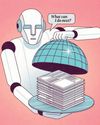
The digital labor revolution
OVER THE PAST TWO YEARS, WE'VE WITNESSED advances in AI that have captured our imaginations with unprecedented capabilities in language and ingenuity. And yet, as impressive as these developments have been, they're only the opening act. We are now entering a new era of autonomous AI agents that take action on their own and augment the work of humans. This isn't just an evolution of technology. It's a revolution that will fundamentally redefine how humans work, live, and connect with one another from this point forward.
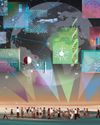
Tech we can trust
Serving humanity's best interests must be at the center of progress